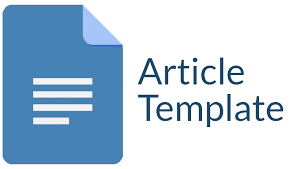KUALITAS PELAYANAN KAREPE DIMESEMI BOJO (KAWASAN REHABILITASI PENYANDANG DISABILITAS MENTAL SEJAHTERA MANDIRI KABUPATEN JOMBANG) OLEH DINAS SOSIAL KABUPATEN JOMBANG (STUDI PADA DESA BONGKOT)
DOI:
https://doi.org/10.26740/publika.v10n3.p937-952Keywords:
Quality of Service, Services for Persons with Disabilities, Karepe Dimesemi BojoAbstract
Karepe Dimesemi Bojo (Rehabilitation Area for Mentally Disabilities Independent, Jombang Regency) is the service innovations in social sector providing social rehabilitation in Bongkot village. The forms of activities include guidance of psychosocial, mental spiritual, mental health posyandu and work skills. The problems in the implementation are the lack of cooperative family factors in assisting and the training doesn't last long. This study uses a descriptive type research and uses a qualitative and describing service quality with 5 indicators of service quality according to Kotler and Keller (2016) include tangible, reliability, empathy, responsiveness, assurance. Methods of collecting data through interviews, observation and documentation . Data analysis technique with qualitative data analysis which includes data collection, data reduction, data presentation and conclusions. The results showed that tangibles, location, place, equipment and facilities were qualified for service needs. Empathy, service officers have given their care and attention caring and understanding service needs. Reliability, the service has been precise, accurate, and reliable so the effectiveness, and efficiency are achieved. Responsiveness, officers have provided services swiftly and responsively as evidenced by the response of officers in dealing with relapse cases in people with mental disabilities. Assurance, the service guarantee that has been provided is good because the officers have received previous training. Suggestions are to recruit psychiatric medical specialists because there are not yet available psychiatric medical specialists and provide training according to the abilities of persons with disabilities because the training provided has not been fully effective so it is not sustainable.
Downloads
 Abstract views: 809
,
Abstract views: 809
, PDF Downloads: 809
PDF Downloads: 809





